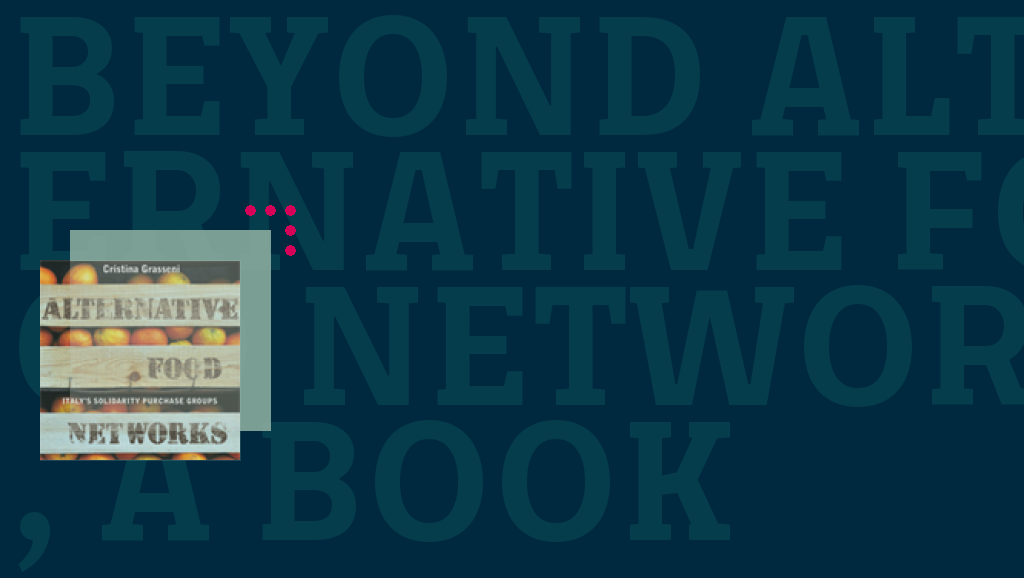Long time Bassetti Foundation collaborator Cristina Grasseni recently published her latest book. Beyond Alternative Food Networks is described by MIT Professor Heather Paxson as “Much more than a book about alternative ways of sourcing and consuming food…. it challenges the rationalist mythology at the heart of capitalism and reveals the affective relations and contingent practices that constitute community and economy in today’s world“.
The book could also be considered a case study into responsible innovation, the subject matter being a more responsible model of food and more general household provisioning.
Grasseni recounts the workings of Italy’s solidarity purchasing groups (GAS). The groups are informal collections of families, working together to procure food and other products from mainly local producers in order to reclaim sovereignty over their purchasing.
GAS groups meet regularly to discuss food sourcing, logistics and lifestyle changes, with Grasseni arguing that their function goes far beyond merely procuring food, with the groups also serving a social purpose in that they help to build a particular form of community. Membership of this community involves becoming socialized into certain skills and lifestyles. Home bread baking, appreciation of the seasonality of food, a better understanding of food systems and production techniques to name but a few, and the onus is very much on the social. Food provisioning becomes food sharing and sociality.
Members of these groups come from many different walks of life and bring different interests, passions and skills to the groups. A member must take responsibility for a single product, from initially identifying a possible source, through looking into their business model and approaches to production and finally placing an order, collecting and distribution the produce. Each group is autonomous, but many play parts in larger networks, allowing them access to products and contacts on a regional or national level.
Grasseni argues that these networks and the relationships built through and within them are relationships of trust. The groups are informal, non legally binding and fluid, but not inconsequential. Figures suggest that these networks may take 80 million a year out of the mainstream Italian economy and redirect the money into direct exchanges with producers, with social, economic and environmental impact.
Peter Utting, Deputy Director of the United Nations Research Institute for Social Development summarizes the book well in his cover comment: “Grasseni provides fascinating insights into how alternative approaches to food provisioning can transform social and economic relationships in ways that bode well for contemporary global challenges of sustainability, social justice and rebuilding human relations built on trust“.
Beyond Alternative Food Networks by Cristina Grasseni is published by Bloomsbury and available through Amazon.
—————
















